This is a standalone project, maintained as part of the @thi.ng/umbrella monorepo and anti-framework.
- About
- Status
- Support packages
- Related packages
- Installation
- Dependencies
- Usage examples
- API
- Authors
- License
100+ type-checked HTML5 element functions for @thi.ng/hiccup related infrastructure.
The following type-checked factory functions are provided so far and
in most cases include specialized type definitions for element-specific
attributes, incl. enumerated attrib values (where applicable/useful) and
all 420+ CSS property names (for use with the style attrib). See type
definitions in
api.ts
and defElement() below for more details.
base, head, link, linkCSS, meta, metaReferrer,
metaRefresh, metaRobots, metaUTF8, metaViewport, metaXUA,
script, style, title
address, article, aside, body, footer, h1..h6, header,
hgroup, html, main, nav, noscript, section
blockquote, div, figure, figcaption, hr, iframe, para,
pre
datalist, dd, dl, dt, li, ol, ul
caption, col, colgroup, table, tbody, td, tfoot, th,
thead, tr
abbr, anchor, br, cite, code, data, del, em, i, ins,
kbd, mark, quote, small, span, strong, sub, sup, time
button, checkbox, fieldset, form, inputColor, inputFile,
inputNumber, inputPass, inputRange, inputSearch, inputText,
label, legend, meter, option, optGroup, progress, radio,
select, textArea
audio, canvas, img, picture, source, video
The hiccup syntax is (by design) merely a convention and specific feature support and interpretation is down to the actual tooling used.
Whilst not a direct aspect or feature of this package, the type definitions for element attributes defined here allow certain constructs which are only supported by some hiccup consumers. OTOH not all of the constructs are meaningful in the different usage contexts and for most there're compatible alternative ways of expressing the same data.
The table below provides an overview of the current syntax feature support by the relevant packages consuming hiccup:
| Feature | Example and HTML equivalent/result | hiccup | hdom | rdom |
|---|---|---|---|---|
| Emmet style tags | ["div#id.foo", {}] |
✅ | ✅ | ✅ |
<div id="id" class="foo"> |
||||
class attrib as object |
["a.bar.baz", { class: { foo: true, bar: false }}] |
✅ | ✅ | ✅ |
<a class="baz foo"> |
||||
style attrib as object |
["div", { style: { color: "red" }}] |
✅ | ✅ | ✅ |
<div style="color:red;"> |
||||
| Attrib array values | ["img", { srcset: ["1.jpg", "2.jpg"] }] |
✅ | ❌ | ✅ |
<img srcset="1.jpg, 2.jpg"> |
||||
| Data attribs as object | ["a", { data: { foo: 42 }}] |
✅ | ❌ | ✅ |
<a data-foo="42"> |
||||
| Function attrib values (1) | ["a", { id: () => "epoch-" + Date.now() }] |
✅ | ✅ | ✅ |
<a id="epoch-1593024083666"> |
||||
IDeref attrib values (2) |
["div", { id: { deref() { return "foo"; }}}] |
✅ | ❌ | ✅ |
<div id="foo"> |
All other features not explicitly mentioned are supported by all three packages.
(1) Excluding event listener attribs, these are always function values of course, but will NOT be evaluated to obtain final attrib value
(2) The
IDeref
interface is implemented by various data structures in the
thi.ng/umbrella eco system (most relevant:
@thi.ng/rstream,
@thi.ng/atom).
STABLE - used in production
Search or submit any issues for this package
The current aim is not necessarily to have wrappers for each possible HTML5 element, but certainly to support the most commonly used ones. PRs welcome!
- @thi.ng/hiccup-html-parse - Well-formed HTML parsing and customizable transformation to nested JS arrays in @thi.ng/hiccup format
- @thi.ng/hdom - Lightweight vanilla ES6 UI component trees with customizable branch-local behaviors
- @thi.ng/rdom - Lightweight, reactive, VDOM-less UI/DOM components with async lifecycle and @thi.ng/hiccup compatible
- @thi.ng/hiccup-svg - SVG element functions for @thi.ng/hiccup & related tooling
yarn add @thi.ng/hiccup-htmlES module import:
<script type="module" src="https://cdn.skypack.dev/@thi.ng/hiccup-html"></script>For Node.js REPL:
const hiccupHtml = await import("@thi.ng/hiccup-html");Package sizes (brotli'd, pre-treeshake): ESM: 1.47 KB
Several projects in this repo's /examples directory are using this package:
| Screenshot | Description | Live demo | Source |
|---|---|---|---|
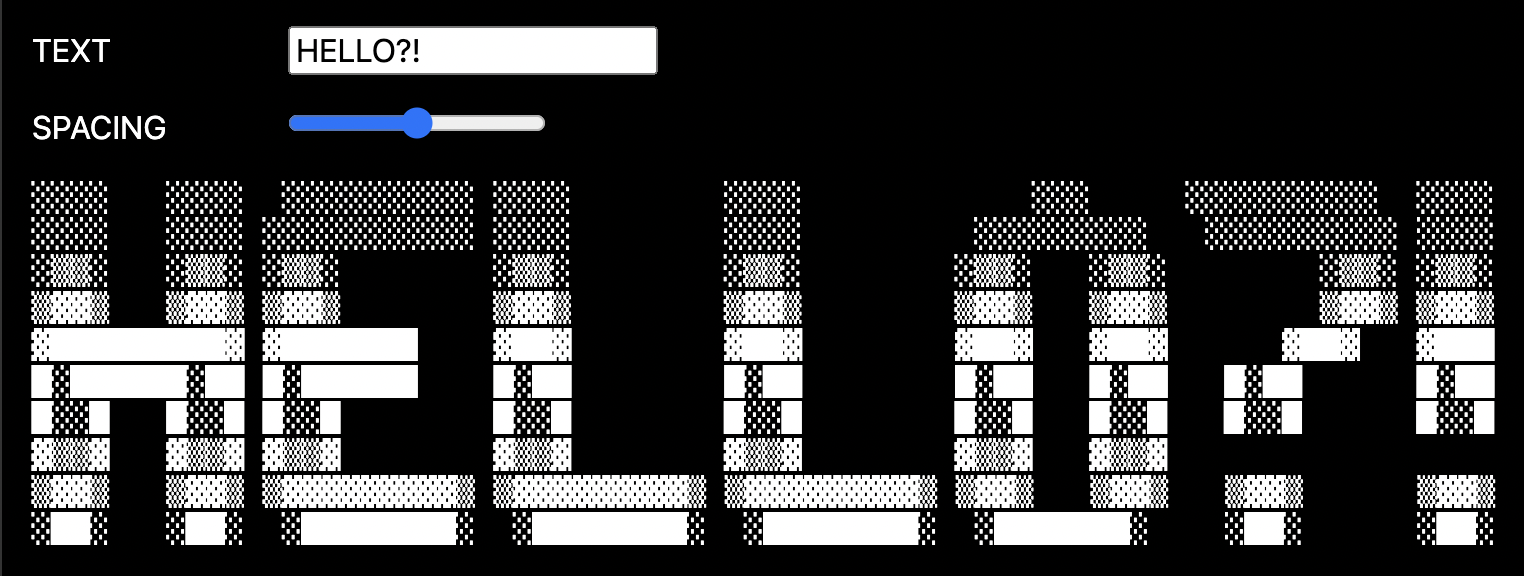 |
Large ASCII font text generator using @thi.ng/rdom | Demo | Source |
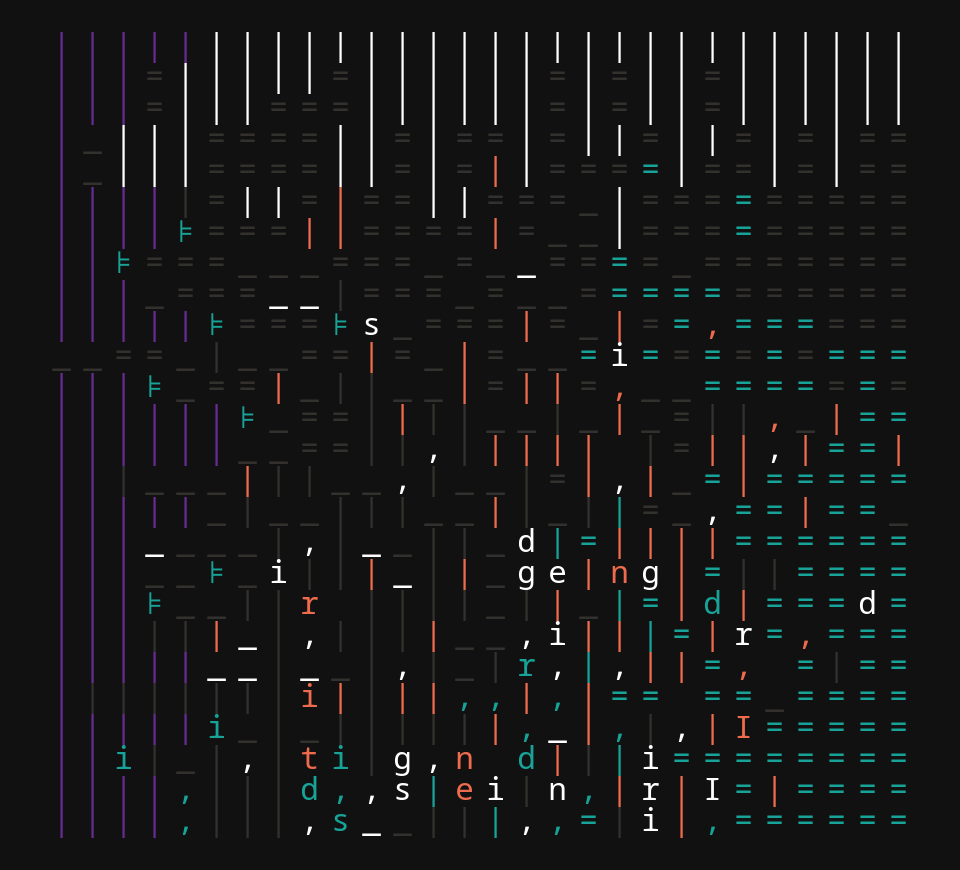 |
Self-modifying, animated typographic grid with emergent complex patterns | Demo | Source |
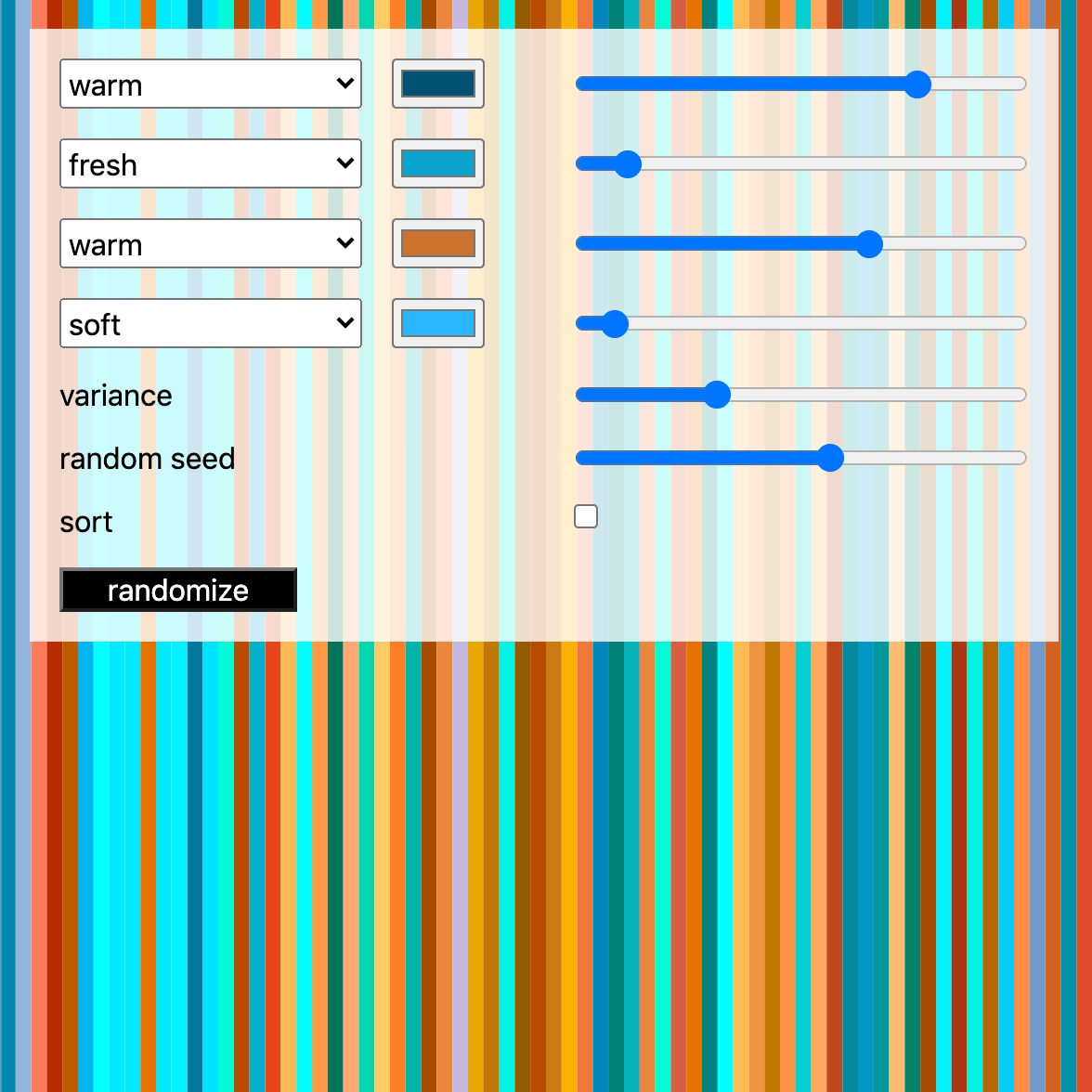 |
Probabilistic color theme generator | Demo | Source |
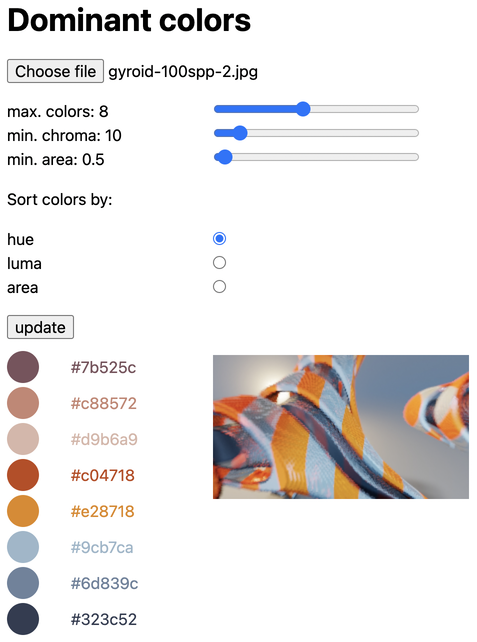 |
Color palette generation via dominant color extraction from uploaded images | Demo | Source |
 |
Randomized space-filling, nested grid layout generator | Demo | Source |
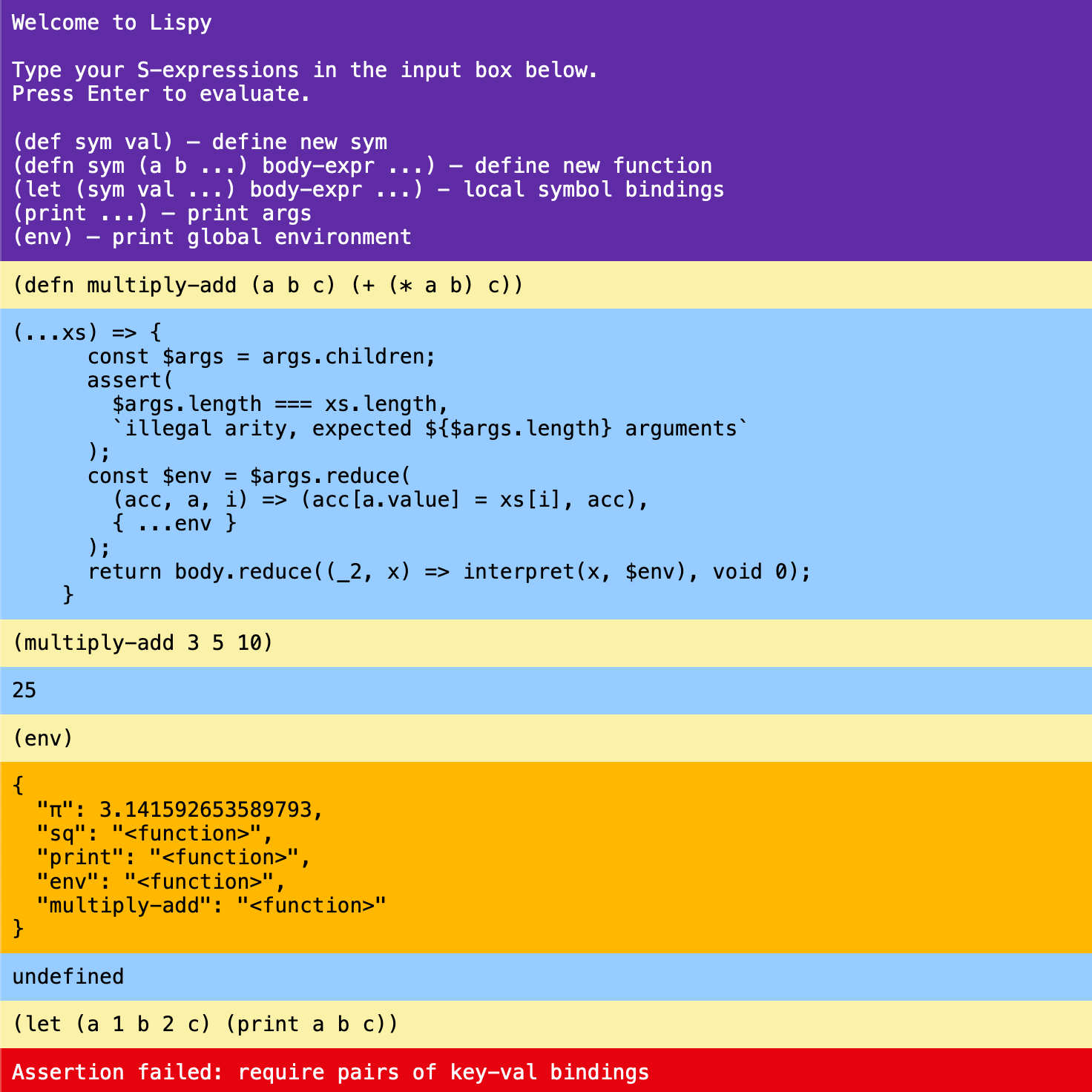 |
Browser REPL for a Lispy S-expression based mini language | Demo | Source |
 |
Mastodon API feed reader with support for different media types, fullscreen media modal, HTML rewriting | Demo | Source |
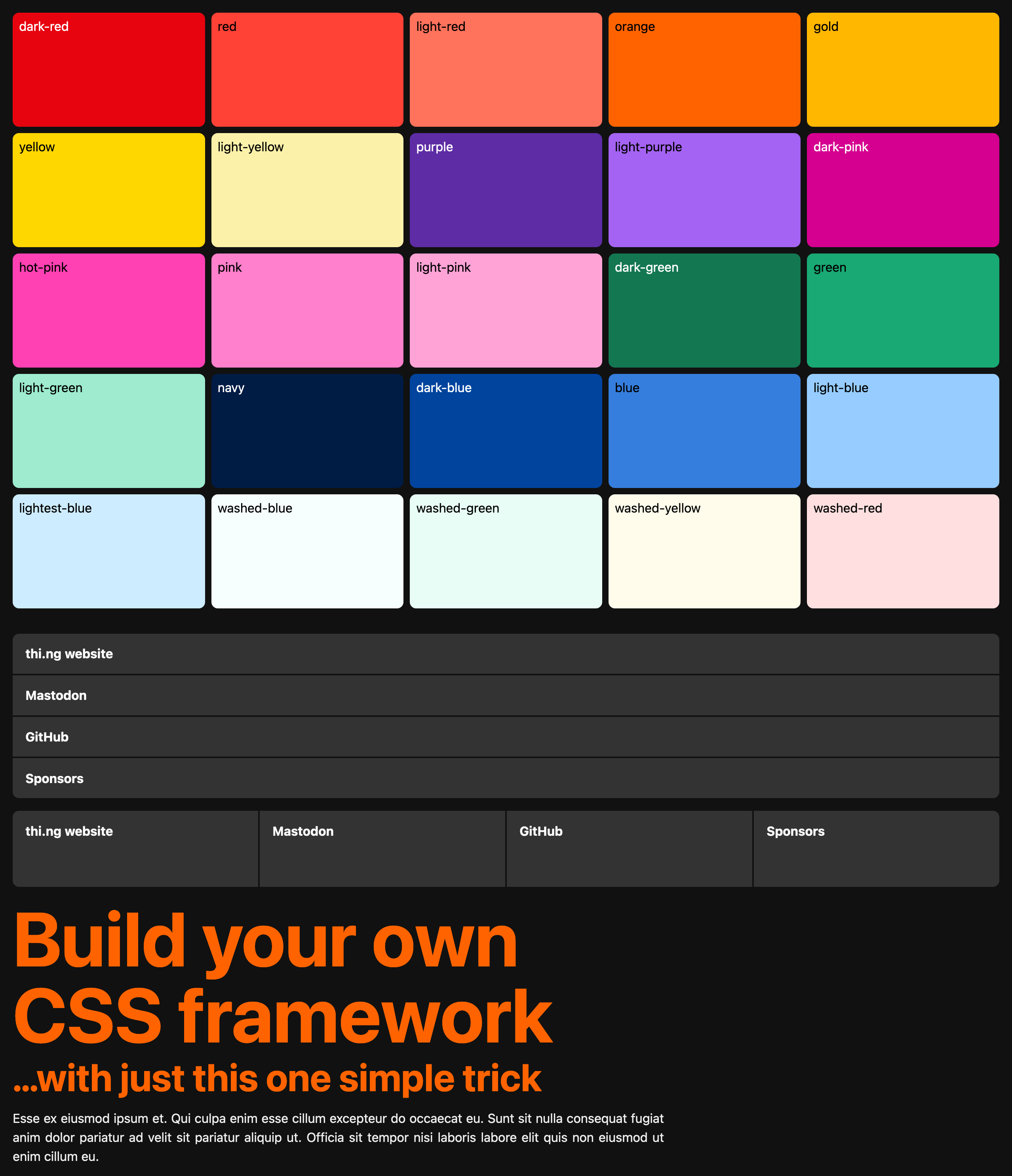 |
Basic thi.ng/meta-css usage & testbed | Demo | Source |
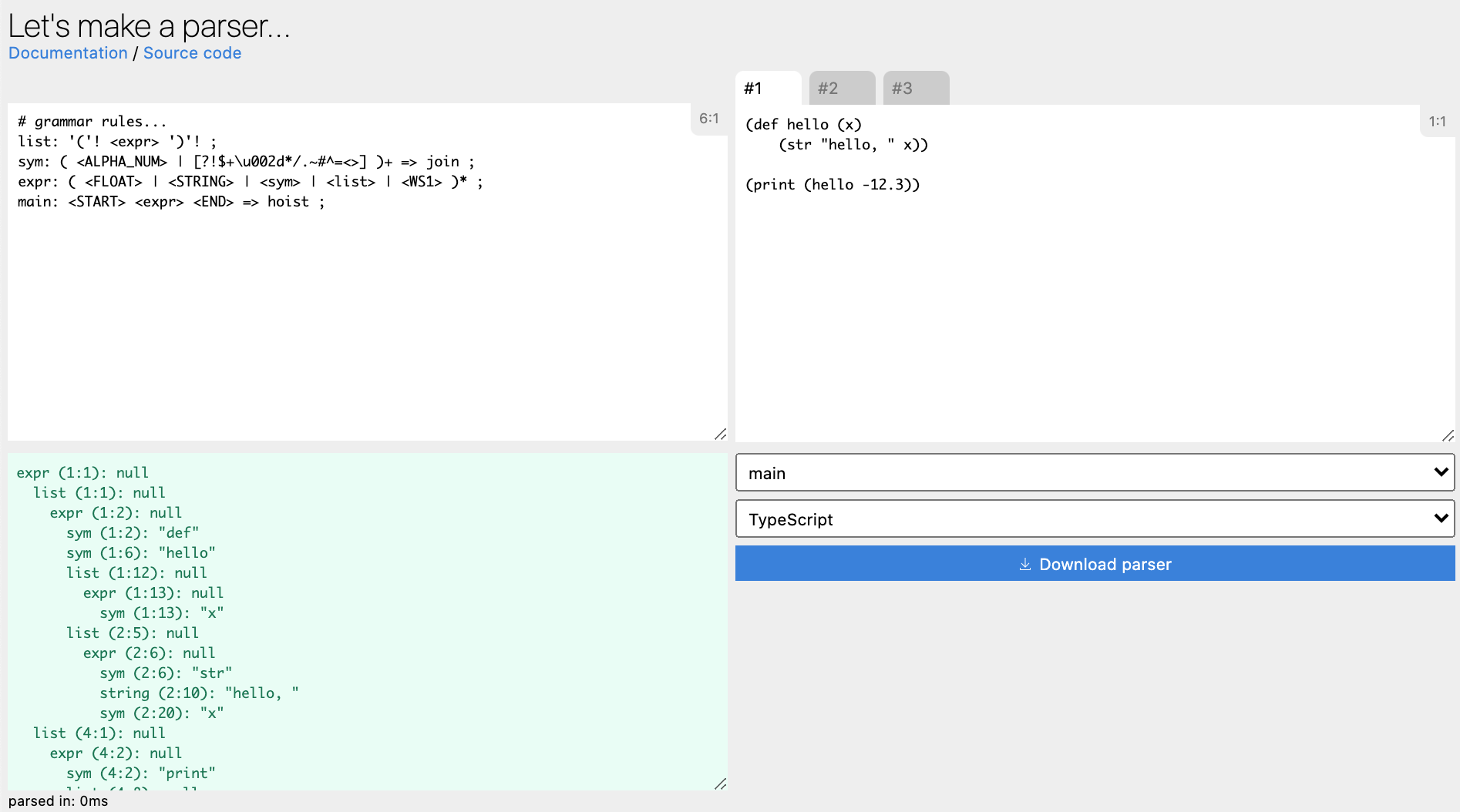 |
Parser grammar livecoding editor/playground & codegen | Demo | Source |
| Randomized 4-point 2D color gradient image generator | Demo | Source | |
| Interactive pixel sorting tool using thi.ng/color & thi.ng/pixel | Demo | Source | |
| RGB waveform image analysis | Demo | Source | |
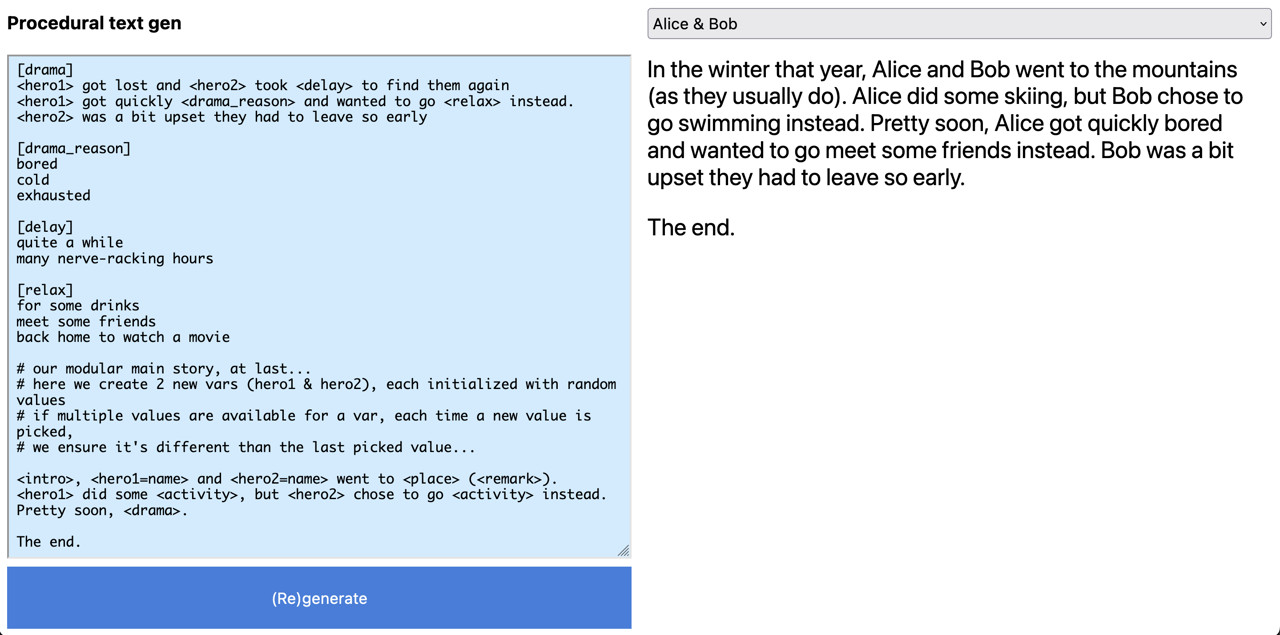 |
Procedural stochastic text generation via custom DSL, parse grammar & AST transformation | Demo | Source |
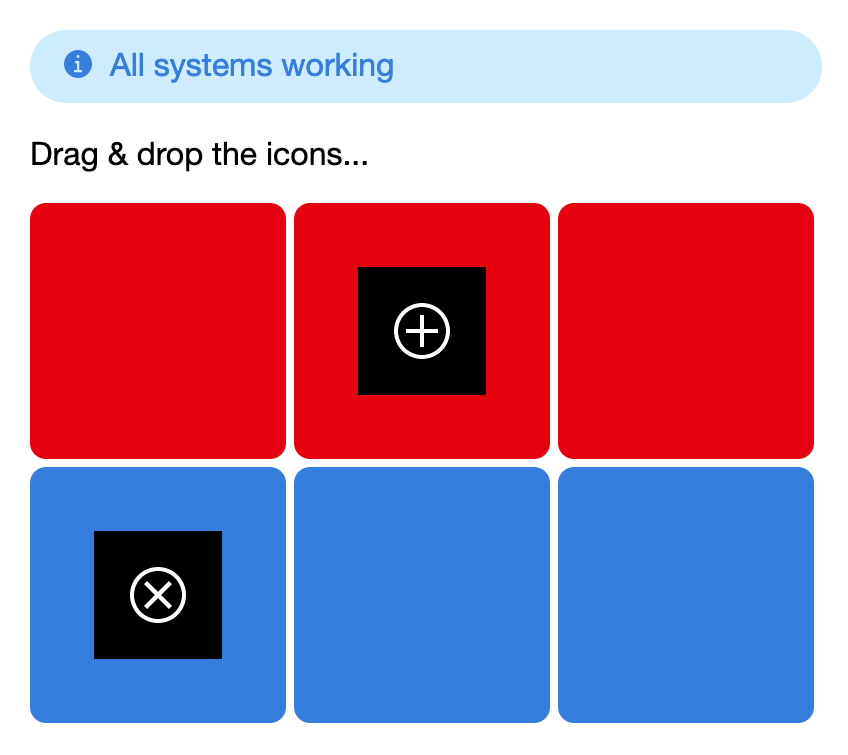 |
rdom drag & drop example | Demo | Source |
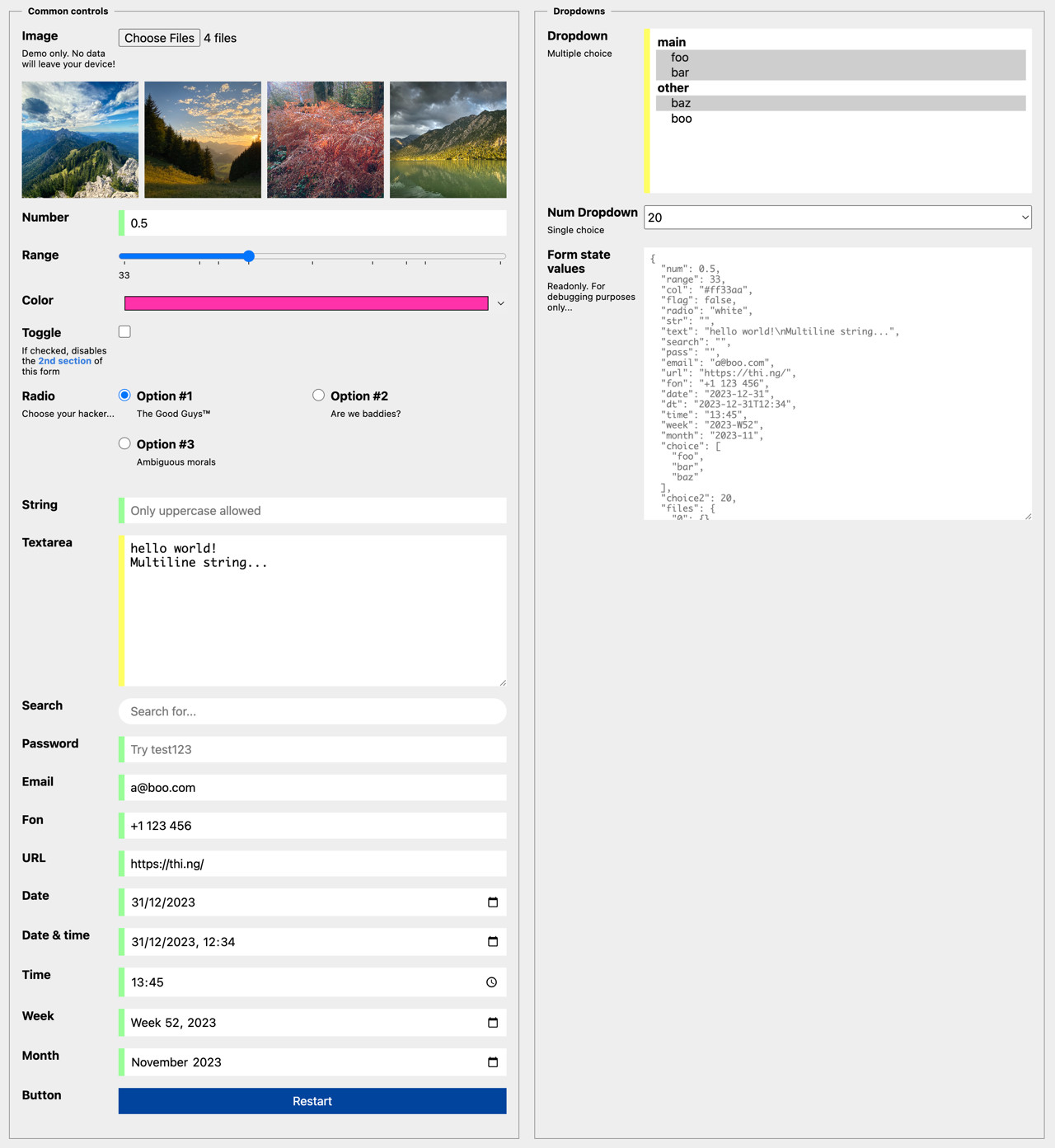 |
Basic usage of the declarative rdom-forms generator | Demo | Source |
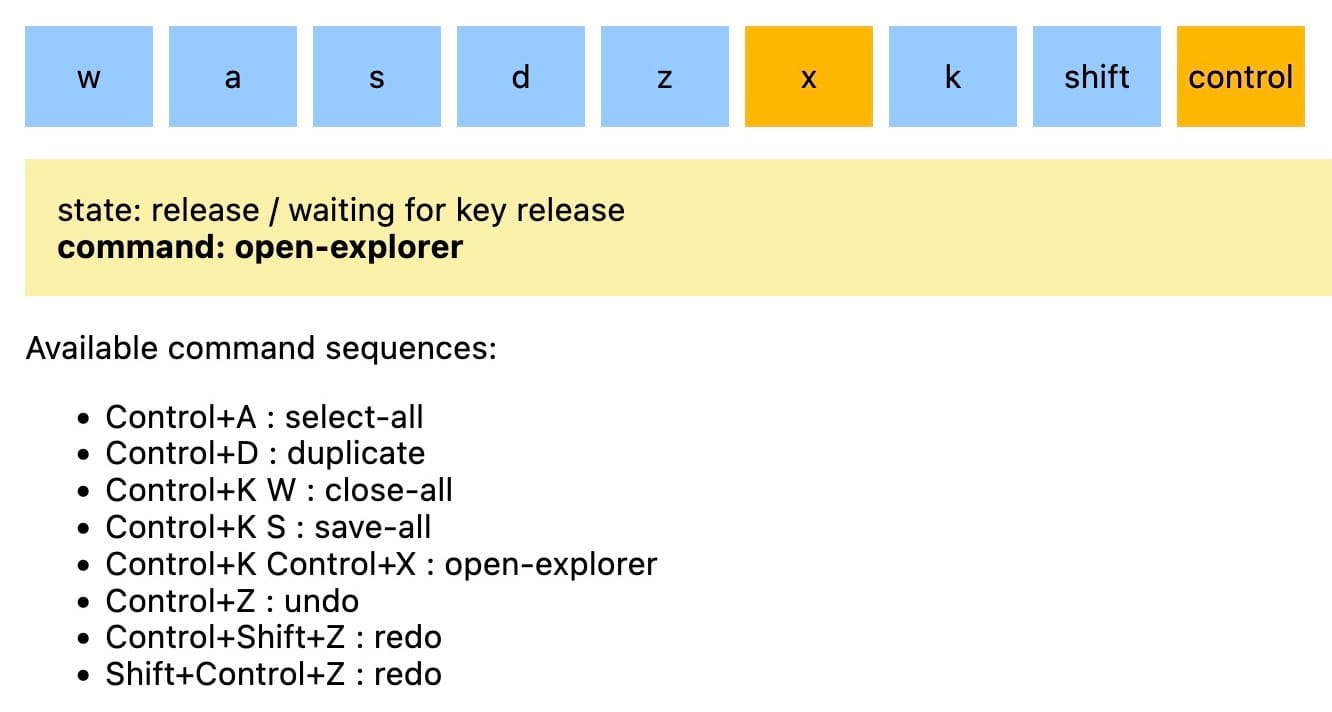 |
rstream & transducer-based FSM for converting key event sequences into high-level commands | Demo | Source |
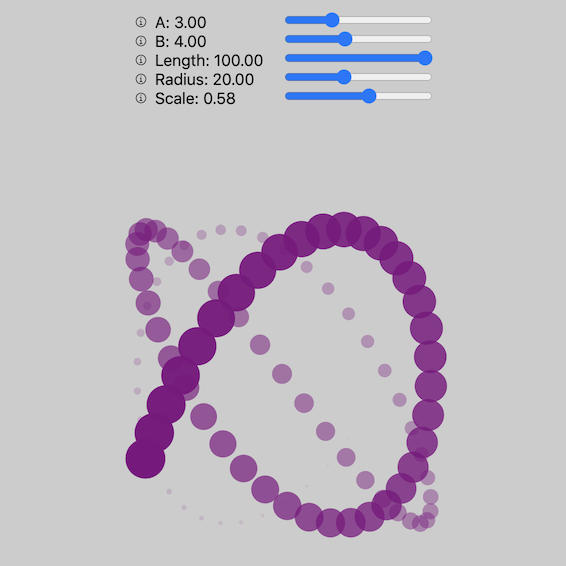 |
rdom & hiccup-canvas interop test | Demo | Source |
| Full umbrella repo doc string search w/ paginated results | Demo | Source | |
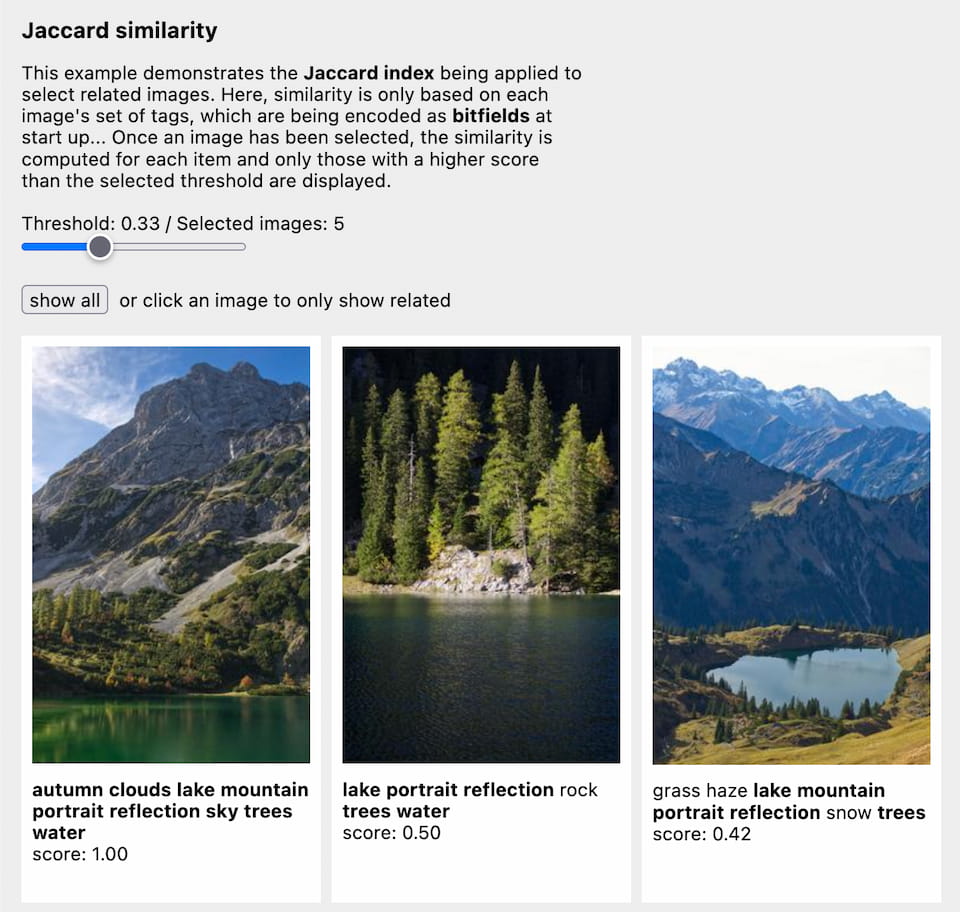 |
Responsive image gallery with tag-based Jaccard similarity ranking | Demo | Source |
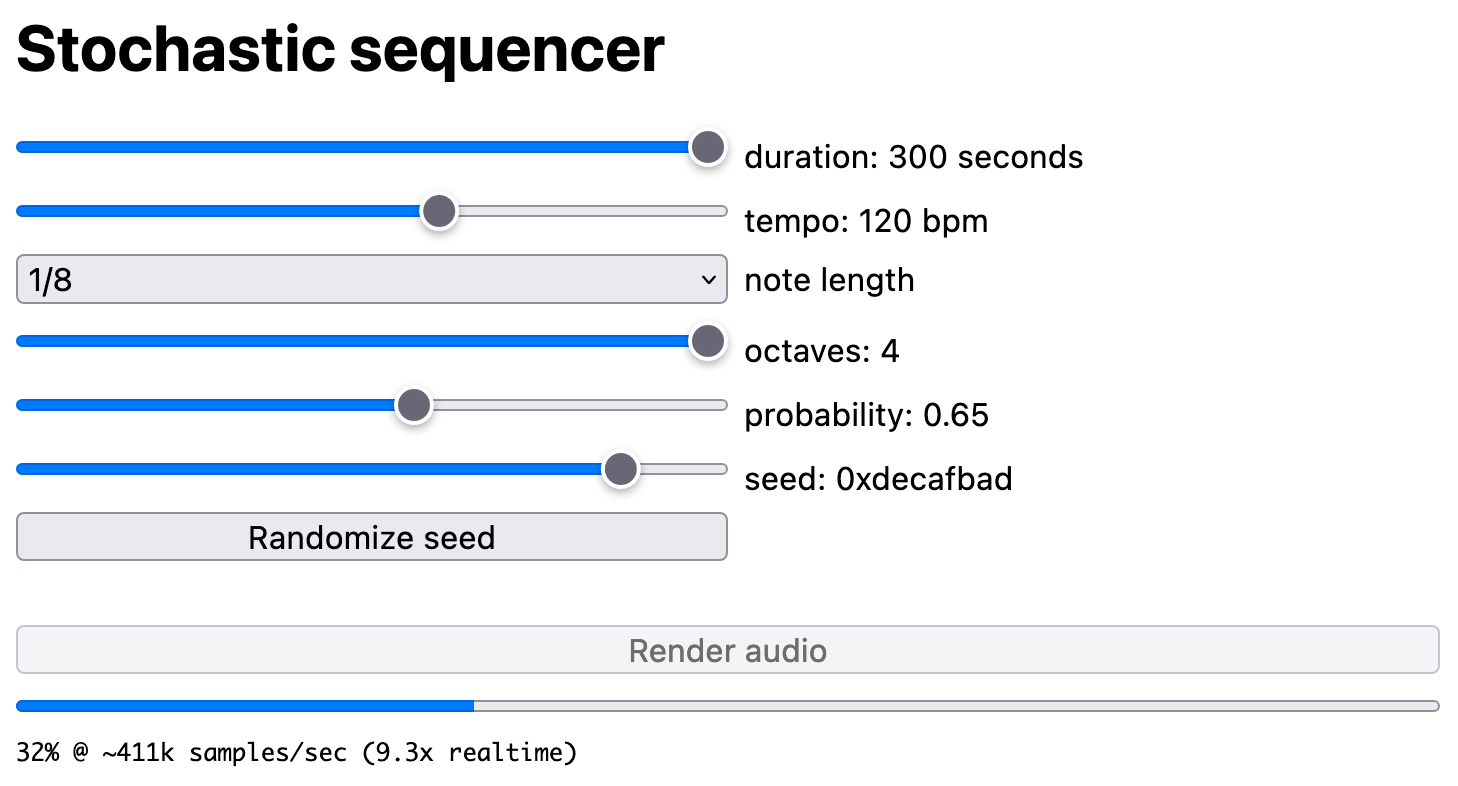 |
Generative audio synth offline renderer and WAV file export | Demo | Source |
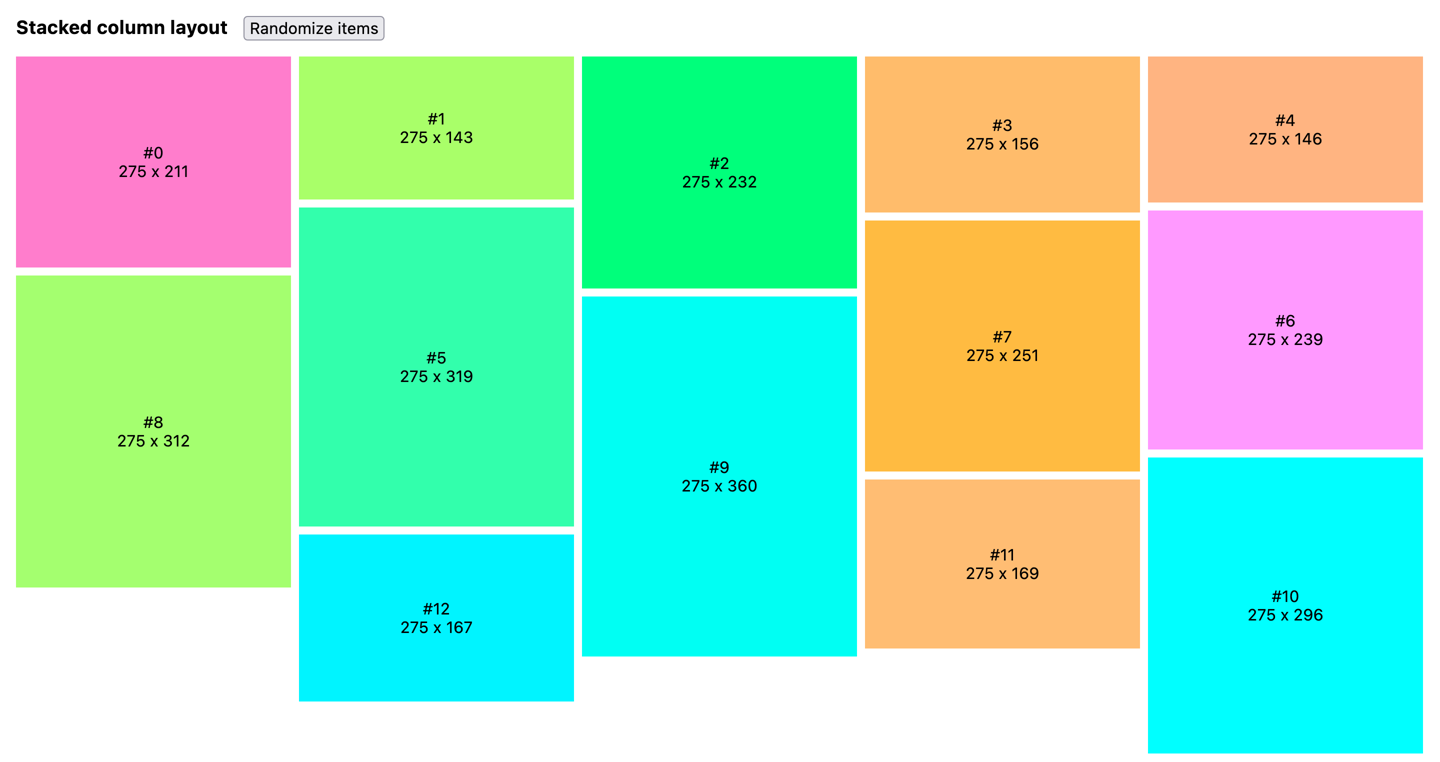 |
Responsive & reactively computed stacked column layout | Demo | Source |
 |
SVG path parsing & dynamic resampling | Demo | Source |
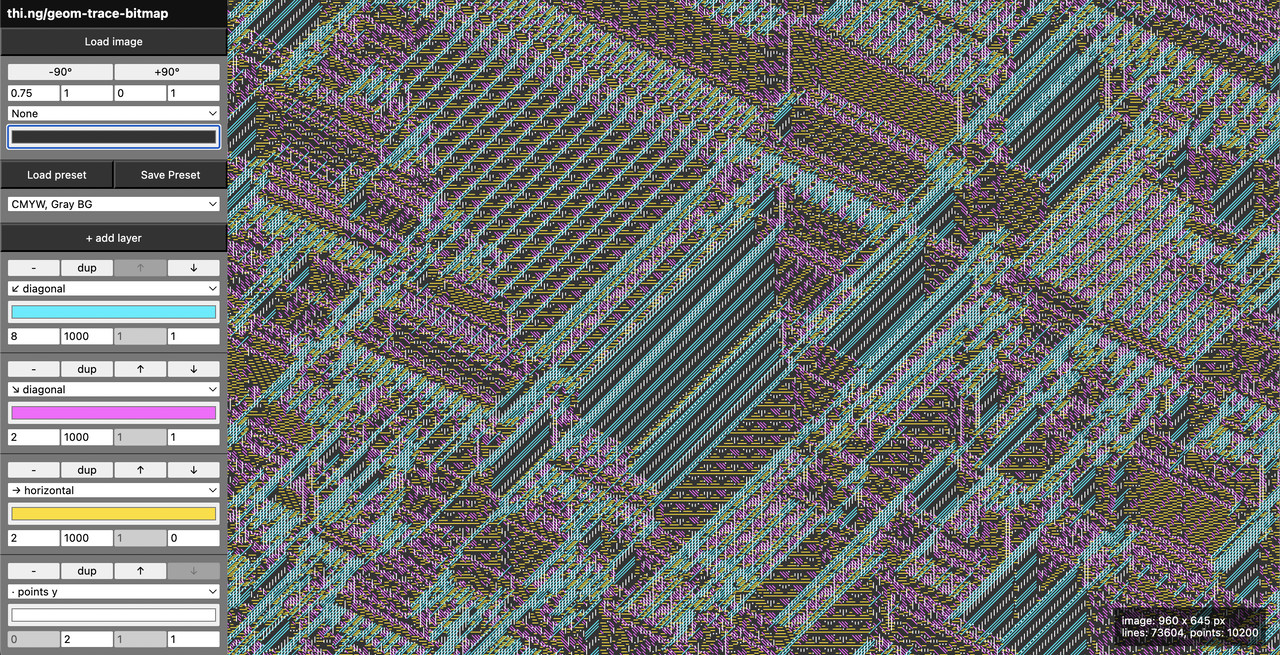 |
Multi-layer vectorization & dithering of bitmap images | Demo | Source |
 |
rdom & WebGL-based image channel editor | Demo | Source |
import { div, label, option, select } from "@thi.ng/hiccup-html";
import { $compile } from "@thi.ng/rdom";
const choices = [
["#f00", "Red"],
["#ff0", "Yellow"],
["#0f0", "Green"],
["#0ff", "Cyan"],
["#00f", "Blue"],
["#f0f", "Magenta"],
];
$compile(
div(
null,
label({ for: "colors" }, "Fave color: "),
select(
{
id: "colors",
onchange: (e) => alert((<HTMLSelectElement>e.target).value),
},
option(null, "Please choose..."),
...choices.map((x) => option({ value: x[0] }, x[1]))
)
)
).mount(document.body);All element functions are created via the higher-order function defElement
which produces the typed, variadic factories. defElement takes an element name
and optional set of default attributes. It also uses generics to enforce types
for the element's attributes (default:
Attribs
and/or children/body (default: any).
Define element with defaults:
import { defElement } from "@thi.ng/hiccup-html";
const el = defElement("tag")Define with custom attribs & no children allowed:
import { Attribs, AttribVal, defElement } from "@thi.ng/hiccup-html";
// extend global HTML default attribs
interface MyAttribs extends Attribs {
class: AttribVal<string>;
width: AttribVal<number>;
height: AttribVal<number>;
}
// provide type constraints and default attribs
const el = defElement<Partial<MyAttribs>, never>(
"tag",
{ width: 100, height: 100 }
);
// or create new versions of existing elements with more limited
// user customization options...
const div = defElement<Partial<Pick<Attribs, "class" | "style">>>("div");The Attribs interface provides a common, fully typed base definition
of HTML attributes (incl. event listeners and enumerated attrib options)
and can be found in
api.ts.
The AttribVal type wrapper is used to allow for reactive attribute
values (in
@thi.ng/rdom)
and IDeref
instances
when later providing attribute values to an element.
The function returned by defElement has the following
signatures:
(attribs?: Nullable<T>, ...body: B[]) => [string, Nullable<T>, ...B[]];
(emmet: string, attribs?: Nullable<T>, ...body: B[]) => [string, Nullable<T>, ...B[]];The result of either form is a simple tuple, defining an HTML element in @thi.ng/hiccup syntax.
If the second call signature is used, the initial emmet-style string
will be appended to the tag name and merely acts as syntax sugar for
providing an element ID and/or CSS classes.
const el = defElement<any>("a");| Call | Result |
|---|---|
el() |
["a", null] |
el(null) |
["a", null] |
el(null, "body") |
["a", null, "body"] |
el({ c: 2 }) |
["a", { c: 2 }] |
el({ c: 2 }, "body") |
["a", { c: 2 }, "body"] |
el("#id.foo") |
["a#id.foo", null] |
el("#id.foo", { c: 2 }) |
["a#id.foo", { c: 2 }] |
el("#id.foo", { c: 2 }, "body") |
["a#id.foo", { c: 2 }, "body"] |
el("#id.foo", null, "body") |
["a#id.foo", null, "body"] |
// with default attribs
const el = defElement<any>("a", { b: 1 });| Call | Result |
|---|---|
el() |
["a", { b: 1 }] |
el(null) |
["a", { b: 1 }] |
el(null, "body") |
["a", { b: 1 }, "body"] |
el({ c: 2 }) |
["a", { b: 1, c: 2 }] |
el({ c: 2 }, "body") |
["a", { b: 1, c: 2 }, "body"] |
el("#id.foo") |
["a#id.foo", { b: 1 }] |
el("#id.foo", { c: 2 }) |
["a#id.foo", { b: 1, c: 2 }] |
el("#id.foo", { c: 2 }, "body") |
["a#id.foo", { b: 1, c: 2 }, "body"] |
el("#id.foo", null, "body") |
["a#id.foo", { b: 1 }, "body"] |
If this project contributes to an academic publication, please cite it as:
@misc{thing-hiccup-html,
title = "@thi.ng/hiccup-html",
author = "Karsten Schmidt",
note = "https://thi.ng/hiccup-html",
year = 2020
}© 2020 - 2023 Karsten Schmidt // Apache License 2.0



